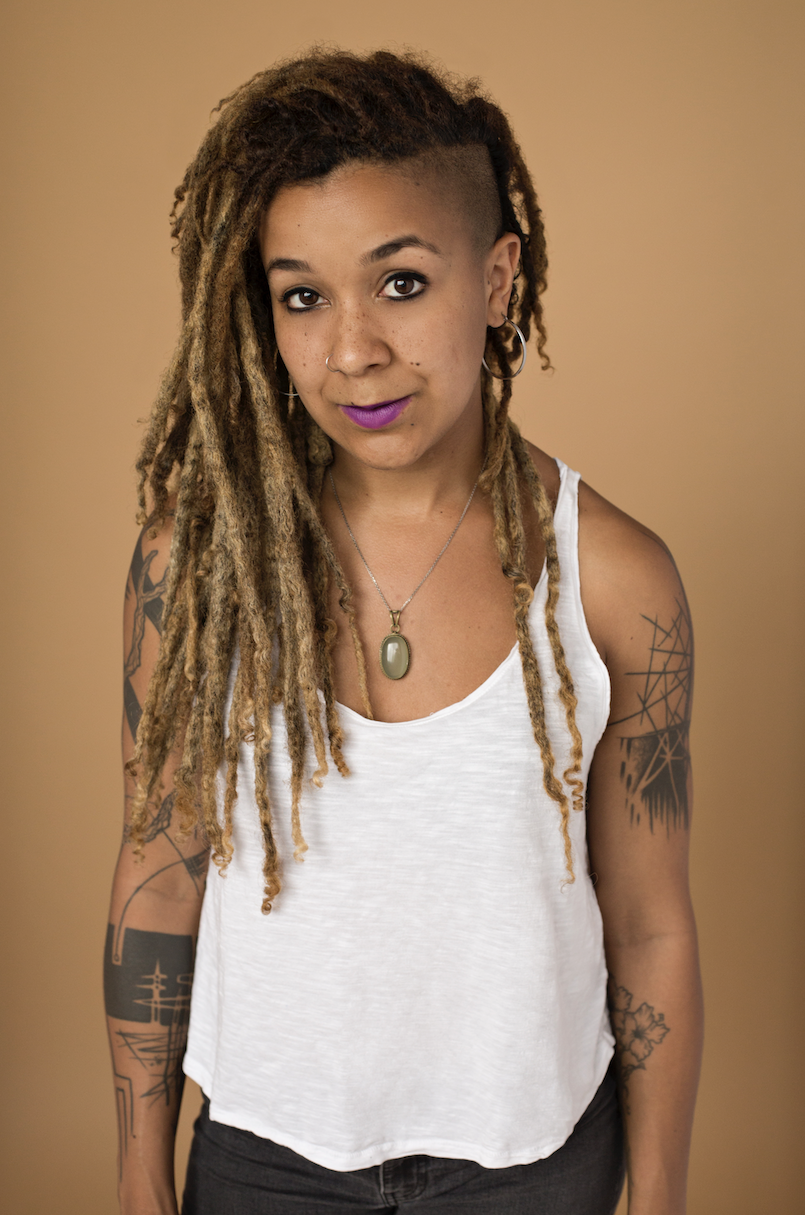What does your research focus on?
My research is in the field of Black and anti-colonial studies, transnational Black feminist thought, social movements, carceral studies (policing, borders), Afrofuturism, and the politics of abolition. My first peer-reviewed monograph, Policing Black Lives: State violence in Canada from slavery to the present (Fernwood, 2017) focused on slavery and its carceral afterlives for Black people in Canada, using a Black abolitionist feminist lens to trace the ways that racialized and gendered surveillance governs the lives of Black people of all genders, including Black children and Black migrants.
My second book, Rehearsals for Living, co-authored with Leanne Betasamosake Simpson, is an epistolary work of Black and Indigenous feminist theory. It is a convening on the meaning of abolition, decolonization, and freedom-making in the context of the multiple catastrophes: the climate crisis, the pandemic, and the broader crises of racial capitalism, policing and prisons.

My current work continues to take up a Black feminist and abolitionist lens, turning now toward the relationships between the trans-Atlantic slave trade and the development and proliferation of transnational border regimes. And, taking seriously the knowledge produced within traditions of Black radicalism, it attends to the multiple ways that Black people navigate, organize, and theorize against border regimes, thinking alongside Black social movements that are working toward a world free from detention, deportation, and displacement.
How (or why) did you become interested in that line of research?
Prior to my period of formal academic engagement, and long before I began writing books, I have a long history of participating in and supporting Black liberation movements and movements against borders. It is in social movements, in histories of radical struggle spanning time and place, that we find an incredibly valuable site of knowledge production, which often goes uncredited.
Since the mid-2000s, I have, alongside countless others, contributed to popular education, workshops, research, community radio, and multiple other forms of knowledge around carceral controls in Canada and globally. It’s been exciting to find ways to further this kind thinking within a university setting, both in terms of research and teaching, which of course is another form of learning.
What’s the most interesting (or underappreciated) aspect of your research that most people won’t know about?
This is hard to answer. But most of my work is available at www.robynmaynard.com, for those who would like to learn more.
Why did you choose UTSC?
I’m feeling very enthusiastic about joining the Women and Gender Studies program, the Department of Historical and Cultural Studies, and UTSC more broadly.
I am particularly thrilled to do so in the capacity of Assistant Professor of Black Feminisms in Canada, because of the possibilities this allows me within the courses I plan to develop. Black feminisms is a vibrant and growing field and I believe that expanding this, from a curricular perspective, has the potential to engage students from across many disciplines. I’m happy to be able to help contribute to this work with many others. Across the program and department faculty is a wealth of expertise that brings together crucial issues of gender, race, colonialism, social movements, and the relationships between history and power.
And crucially for me, UTSC has an incredible student body: I appreciate that the campus brings in so many working class, first generation, LGBTQI*, Black and racialized students. It will be an exciting environment to help develop Black and Black feminist studies, and I look forward to teaching, mentoring, and learning from the undergraduates here.
What are you reading/watching right now?
The Point is to Change the World: Selected writings of Andaiye (Ed. Alissa Trotz), No More Police by Andrea J. Ritchie and Mariame Kaba, Nomenclature by Dionne Brand, and Moving Towards Home by June Jordan.
I also believe strongly in world-making as a theory and practice: you will always find me reading and re-reading works of science fiction, Afrofuturist and Africanfuturist texts. To name only a few: Ursula Leguin, Nnedi Okorafor, N.K. Jemisin, Octavia Butler, Samuel Delany.